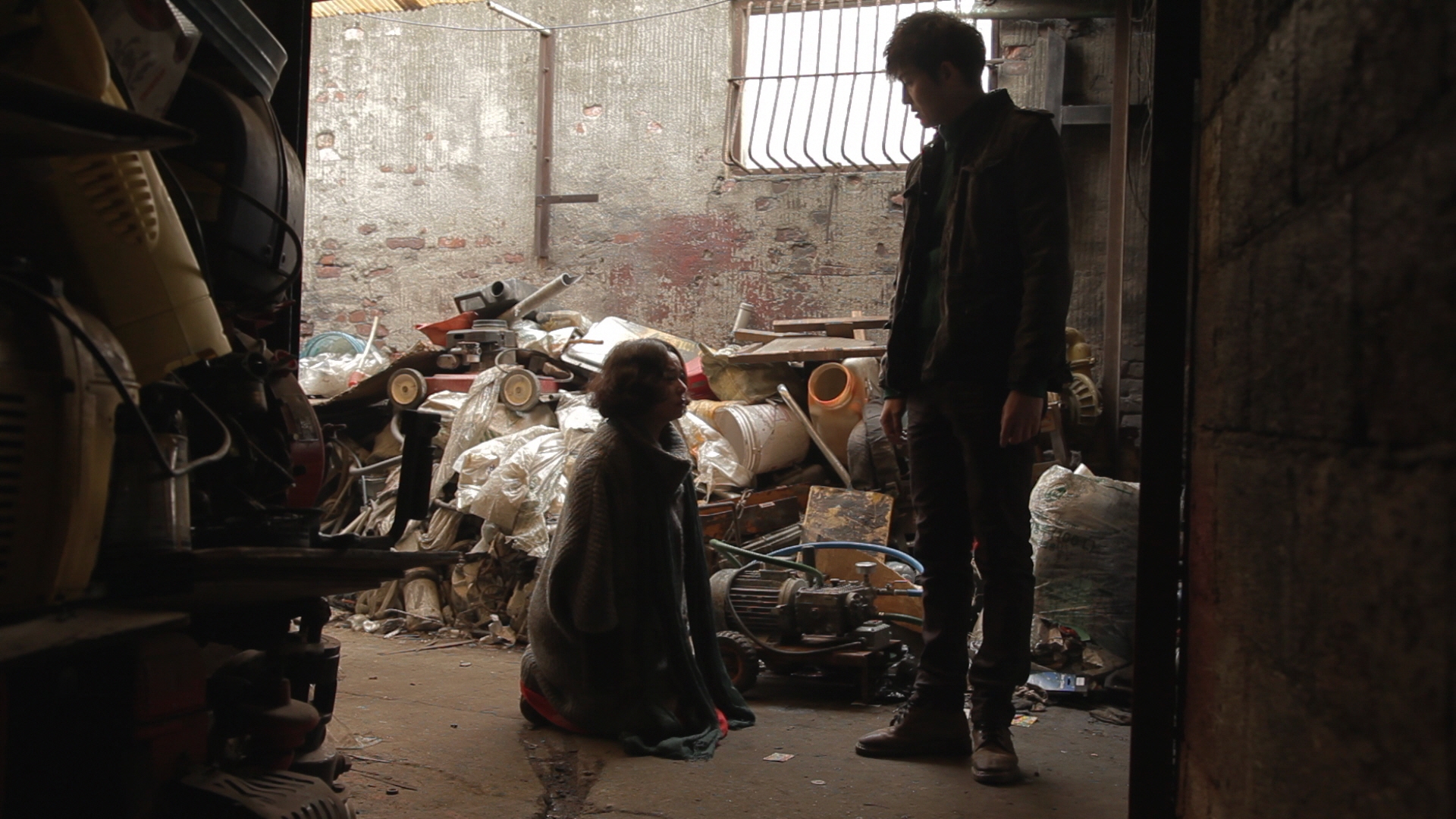By Chlotrudis Independent Film Society
Rating: 4.25 cats
Director: Kim Ki-Duk
Starring: Heo Joon-seok | Jo Jae-ryong | Jo Min-soo | Kang Eun-jin | Lee Jeong-jin | Woo Gi-hong

Country: south_korea
Year: 2013
Running time: 104
IMDB: http://www.imdb.com/title/tt2299842/combined
Thom says: “I’m still trying to figure out what happened to the career of director Kim. After SPRING, SUMMER, FALL, WINTER…AND SPRING (2003) won numerous world awards, including an award from Chlotrudis as well & I when I finally saw it I became a crazy fan of his work. In succession I saw THE ISLE, REAL FICTION, ADDRESS UNKNOWN, THE COAST GUARD, BAD GUY, 3-IRON, THE BOW, TIME, & BREATH & he entered my TOP 10 LIVING DIRECTORS list. But then DREAM & AMEN never played in San Francisco and now this relative disappointing effort I’m nonplussed. It’s the story of a violent debt collector (Mi-Son) who consistently physically handicaps clients that don’t pay their interest on time. Suddenly arriving is a woman who claims to be Mi-Son’s mother who abandoned him shortly after his birth. Although he treats her horribly at first including forcing her into truly unmentionable acts he eventually comes to love her with unpredictable results. Hard to watch at times only Kim’s inimitable style brings it through at all. 4 cats”
Jason says: “Kim Ki-duk has a reputation – well deserved, honestly – for movies with strange premises, minimal dialogue, and execution that’s maybe a bit pretentious. It’s not all he does, though; he’ll occasionally serve as a writer and producer for something a little less iconoclastic. PIETA plays like he decided to direct one of those more commercial scripts himself, making for a movie that’s undeniably his but also a much more mainstream Korean movie.
“Much of the action takes place in an industrial area that’s not doing well; things are rough enough that Kang-do (Lee Jeong-jin) can practically go door- to -door collecting and enforcing for a loan shark. A pitiless sort, Kang-do’s method for collecting from those who cannot repay is to take out an insurance policy and injure them with their own equipment. Then one day Mi-seon (Jo Min-soo) shows up at his door, explaining that she’s his long-lost mother and wants to make up for lost time. Perhaps this can restore some amount of his missing humanity.
“If it does, it’s not going to be through long, revealing conversations; this is, after all, a Kim Ki-duk movie, and that is really not his thing. Kim likes his stubborn silences, and there’s plenty of those here, with Mi-seon abjectly refusing to explain the reasons for her absence and return, or what she has been doing in between. Kang-do isn’t nearly so laconic as Kim’s usual male lead, although he certainly does know that relatively few words are a nice way of demonstrating control and domination – watch how much more he runs his mouth when revisiting people in a panic compared to his cool initial visits. It’s a well-known trick by now – keeping a character silent often makes another spill more than he or she might otherwise, and it forces the audience to examine what they see on-screen much more closely than usual.
“They’ll be rewarded for doing so, as both lead actors are doing great work. Jo Min-soo has won a number of awards for this role, as well she should: Looking haggard and worn down from a life of unspoken tragedies, she doesn’t portray simple love or even duty so much as a sort of determination to change things through sheer force of will. Later on, Jo does an excellent job of keeping Mi-seon consistent even as her specific feelings and motivations are made clearer. Lee Jeong-jin, meanwhile, starts out by portraying the sort of casual cruelty that makes it clear why a visit from Kang-do would be so dreaded. He does sadistic things without appearing to be sadistic himself, which is almost sociopathic. It’s nifty to watch Kang-do crawl out from under that, especially since Lee and Kim recognize that more humane intentions don’t necessarily correspond to a nicer personality.
“The rest of the cast is good, too, although this is generally a two-person show. In many ways, Woo Gi-hong & Kang Eun-jin (as a husband-and-wife team), Heo Joon-seok, and Jo Jae-ryong are portraying the setting as much as individuals, a landscape where small businesses that actually produce tangible things are being purged for mass-produced luxury items, where even if you pay off the loan shark, you’re still at the mercy of other predatory businesses. If Kang-do lacks empathy, maybe it’s a reflection being an orphan raised by an institution; it takes a family unit to appreciate the family business.
“Kim doesn’t overtly equate Kang-do to the world at large, even if his not knowing a mother’s love is stated as his individual problem rather plainly. That’s what gets the movie to its second half, which in terms of story is maybe more something one would expect from Park Chan-wook than Kim Ki-duk, as a cycle of revenge comes into play. Kim does come up with some entertaining ways to play with the genre, though, and it’s impressive how well a couple of scenes, including the climactic one, manage to be legitimately dramatic even if they do play like farce.
“That’s Kim in a nutshell, though – beneath the deliberately off-putting style is a mind that is often drawn to the absurd. This time, he just happens to be letting the audience get to the strange place at a more comfortable pace rather than starting them off there. 4.5 cats
“Seen 30 March 2013 in the Brattle Theatre (Boston Underground Film Festival, digital).”
